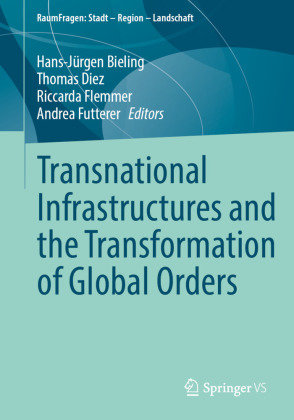This book offers a multidisciplinary insight into the significance of infrastructural change for global orders. While infrastructures form the material basis of our everyday lives and their design and use determine the further development of our societies, infrastructures themselves often remain invisible in everyday life. Although they are and have always been subject to political conflicts their contestation often only becomes visible when the circulation of data, goods and people is disrupted. Rarely has this been more evident than at the moment, when we are experiencing a multitude of overlapping global crises. The threat of the nearing climate catastrophe shows us the inadequacies and climatic impacts of our energy and transport systems. The Russian war of aggression in Ukraine and the subsequent energy crisis underline how dependent we are on infrastructures and how their political instrumentalization contributes to the escalation of conflicts. The COVID-19 pandemic has further exposed the vulnerability not only of national infrastructures but also of global supply chains. These crises illustrate twofold: first they show that transnational infrastructures are no longer only deepening ties between individuals, societies, and states. This was for long the hope of transnational actors. Infrastructures may still stabilize global orders, but they also foster their reconfiguration, facilitating the establishment and rise of certain political actors and the decline of others. Second, these crises force us to ask about the significance of transformed infrastructures for global orders; how this transformation manifested itself historically and how it is shaping the present and future alike. What can a comprehensive understanding of the impact of infrastructures on global orders contribute to the challenges of the 21st century? With this anthology we approach this question from different perspectives. The book deals with infrastructures in different fields - from energy to transport, from communication to migration - and at different levels of society - local, regional, global. What unites all the contributions is an interest in showing what the respective dynamics within and among these fields as well as the driving forces behind these developments mean for our society. This book is aimed at a wide audience from infrastructure researchers to IR experts as well as from colleagues with expertise in specific policy fields to the general reader interested in the effects often invisible transnational infrastructures have on the organization of their everyday life.

